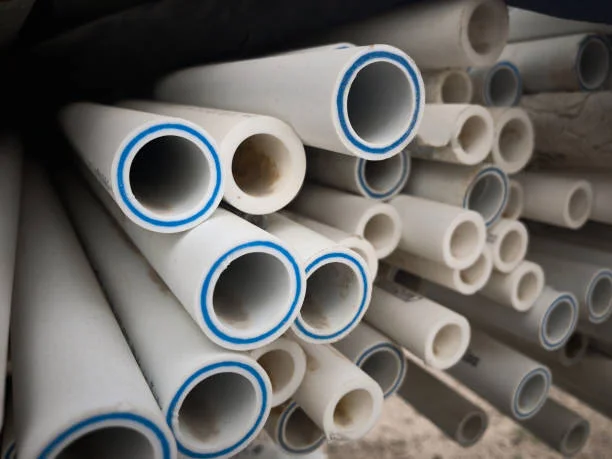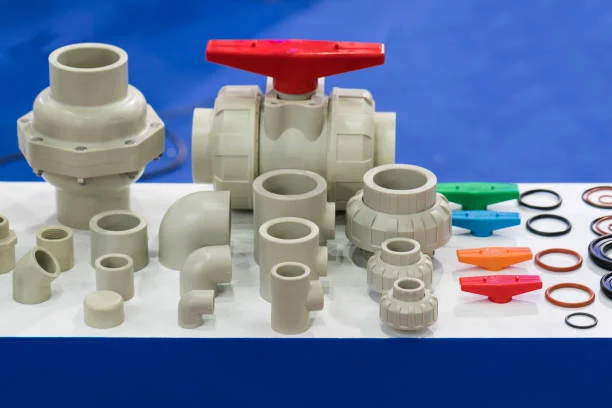Comparing HDPE pipes to traditional materials reveals Newtech-pipes.com as a leading manufacturer of HDPE pipes in Pakistan, offering versatility for construction projects. HDPE pipes outshine PVC, concrete, and steel with durability, flexibility, and corrosion resistance, ensuring reliable infrastructure solutions—Trust Newtech-pipes.com’s 30 years of industry experience for high-quality products meeting diverse construction needs.
Comparing HDPE Pipes to Traditional Materials
In this article, we will compare HDPE pipes to traditional materials used in the construction industry. We will also mention the name of your company, Newtech-pipes.com, and highlight its role in the industry.
Benefits of HDPE Pipes to Traditional Materials
HDPE pipes are a popular choice for construction applications due to their durability, flexibility, and long lifespan. They are resistant to corrosion and weathering, making them ideal for water supply, gas distribution, and sewerage systems.

Comparison with Traditional Materials
PVC Pipes
PVC pipes are commonly used in construction applications. However, they are not as durable as HDPE pipes and can become brittle over time. PVC pipes are also prone to cracking and leaking.
Concrete Pipes
Concrete pipes are another option for construction applications. However, they are heavy and difficult to install. They are also prone to cracking and can be expensive to repair.
Steel Pipes
Steel pipes are a popular choice for gas distribution systems. However, they are not suitable for water supply or sewerage systems due to their susceptibility to corrosion.
Applications of HDPE Pipes
HDPE pipes are suitable for a wide range of construction applications. They are commonly used for water supply, gas distribution, and sewerage systems. They are also used in mining operations and industrial processes.
Comparing HDPE pipes to traditional materials, it’s clear that Newtech-pipes.com stands out as a leading manufacturer of HDPE pipes in Pakistan, offering a wide range of products suitable for various construction applications.
As we conclude our comparison between HDPE pipes and traditional materials, it’s evident that HDPE pipes offer unparalleled advantages in terms of durability, flexibility, and resistance to corrosion. With Newtech-pipes.com leading the industry as a premier manufacturer of HDPE pipes in Pakistan, customers can trust in the quality and reliability of their products for diverse construction projects.
Newtech-pipes.com
Newtech-pipes.com is a leading manufacturer of HDPE pipes in Pakistan. The company offers a wide range of products that are suitable for various construction applications. With over 30 years of experience in the industry, Newtech-pipes.com is committed to providing high-quality products that meet the needs of its customers.
Comparing HDPE pipes to traditional materials, it’s clear that Newtech-pipes.com stands out as a leading manufacturer of HDPE pipes in Pakistan, offering a wide range of products suitable for various construction applications.
As we conclude our comparison between HDPE pipes and traditional materials, it’s evident that HDPE pipes offer unparalleled advantages in terms of durability, flexibility, and resistance to corrosion. With Newtech-pipes.com leading the industry as a premier manufacturer of HDPE pipes in Pakistan, customers can trust in the quality and reliability of their products for diverse construction projects.
Conclusion Of Comparing HDPE Pipes to Traditional Materials
HDPE pipes offer significant advantages over traditional materials such as PVC, concrete, and steel. They are durable, flexible, and resistant to corrosion and weathering. Newtech-pipes.com is a leading manufacturer of HDPE pipes in Pakistan and offers a wide range of products that are suitable for various construction applications.

Continuing our exploration of HDPE pipes versus traditional materials, it’s evident that HDPE pipes stand out as a superior choice for construction projects. Their durability, flexibility, and resistance to corrosion offer significant advantages over materials like PVC, concrete, and steel. With Newtech-pipes.com leading the way as a premier manufacturer of HDPE pipes in Pakistan, customers can trust in the quality and reliability of their products for various construction applications. Whether it’s water supply, gas distribution, sewerage systems, or industrial processes, HDPE pipes from Newtech-pipes.com provide unmatched performance and longevity, ensuring sustainable and efficient infrastructure development. Choose HDPE pipes and experience the difference in your construction projects today.
Frequently Asked Questions About Comparing HDPE Pipes to Traditional Materials
Q1: What are HDPE pipes, and how do they compare to traditional materials?
A1: HDPE (High-Density Polyethylene) pipes are a type of plastic piping known for their strength, durability, and versatility. Unlike traditional materials like metal or concrete, HDPE pipes offer several advantages, including corrosion resistance, lightweight design, and ease of installation.
Q2: What are the common applications for HDPE pipes compared to traditional materials?
A2: HDPE pipes find widespread use in various industries, including water supply, wastewater management, gas distribution, telecommunications, and more. Traditional materials may be used in these applications, but HDPE pipes are often preferred due to their superior qualities.
Q3: How do HDPE pipes contribute to sustainability and environmental responsibility?
A3: HDPE pipe manufacturing companies prioritize sustainability by using recycled materials and adopting energy-efficient production processes. This minimizes their carbon footprint and conserves resources. In contrast, traditional materials like metal and concrete may involve more resource-intensive production methods.
Q4: What makes HDPE pipes leak-proof and efficient?
A4: HDPE pipes are known for their leak-resistant joints, ensuring minimal water wastage and efficient water distribution. Traditional materials may have joints that are more prone to leakage and may require more maintenance.
Q5: Are HDPE pipes cost-effective when compared to traditional materials?
A5: HDPE pipes often offer cost savings due to their lightweight design, ease of installation, and reduced maintenance requirements. Traditional materials may be heavier and require more labour-intensive installation processes.
Q6: How do HDPE pipes contribute to water quality and safety?
A6: HDPE pipes are corrosion-resistant, which helps maintain water quality as they don’t corrode or leach contaminants into the water. Traditional materials like metal pipes may pose risks to water quality due to corrosion.
Q7: Are HDPE pipes more durable than traditional materials?
A7: HDPE pipes have a significantly longer service life compared to traditional materials. Their resistance to corrosion, environmental stress, and wear and tear makes them a durable choice. Traditional materials may require more frequent replacements.

